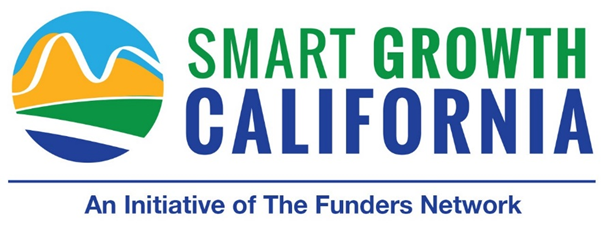Coastal Resilience in an Era of Rapid Sea Level Rise
Rising sea levels due to climate change have put people, the natural and built environment at severe risk not only on the California coast, but throughout the state. Flooding affects housing and transportation infrastructure and rising groundwater releases buried toxics, with disproportionately impacting low-income communities of color bearing the greatest burden. The price tag to mitigate these dangers to community and economic wellbeing are staggering, with over $110 Billion projected for the Bay Area alone.
With historic amounts of public funding now in available to support climate resilient physical and social infrastructure in Northern California, a just transition towards climate resilient communities is possible. Leadership throughout Northern California is responding with community-centered, resilient approaches. On the Northern Coast, in Humboldt, a network of organizations is moving forward with a set of nature-based solutions. And in numerous places along the California Coast, multiple tribal nations are working collaboratively to protect and restore coastal and marine ecosystems through Indigenous Traditional Knowledge and Tribal Science practices. In the Bay area, Bay Adapt, which is facilitated by the San Francisco Bay Conservation and Development Commission, represents a regional strategy for a rising bay.
At this upcoming convening, we’ll discuss equitable, climate resilient solutions that are growing in momentum, each with its own unique set of strategies and tactics. We’ll learn from a set of local stakeholders working across sectors on issues related to navigating the disproportionate impacts on low-income, communities of color. You’ll also have an opportunity to share with and hear from other NCG members active throughout Northern California.
Pastries and coffee will be provided.
Outcomes
- Build stronger relationships between funders across a spectrum of climate resilience intersections
- Enhance funder knowledge and awareness of sea level rise, hazard mitigation, tribal resilience, climate justice, housing
- Seed ideas for potential funder collaboration and advocacy
Speakers
Kristina Hill
Kristina Hill
Kristina Hill develops research on sea level rise and design strategies for adaptation to coastal flooding, with an emphasis on the risks and limits imposed by rising groundwater. She maps groundwater and contaminated sites to identify vulnerable habitat areas, buildings and infrastructure.
Hill identifies innovative design ideas and precedents from around the world to demonstrate how low-lying urban neighborhoods can adapt in place rather than retreat. She uses adaptation pathways as methods to identify successful sequences of actions that incorporate new design and planning approaches. Her work identifies synergies between support for biodiversity and the environmental justice needs of people who are particularly vulnerable to health impacts and housing displacement.
Kristina has contributed to adaptation plans for a diverse group of US cities, federal agencies, and the Rockefeller Foundation; she lectures internationally about her research, and her ideas have been featured in US and international media (PBS’s Sinking Cities, the podcast Hidden Brain, and the Guardian). Her most recent research paper in the AGU journal Earth’s Future identified contaminated sites in the San Francisco Bay Area that are exposed to rising groundwater near the coast. Hill’s PhD is from Harvard University, and she is Director of the Institute for Urban and Regional Development at UC Berkeley.
Valentin Lopez
Valentin Lopez
Valentin Lopez is the Chairman of the Amah Mutsun Tribal Band, one of three historic tribes that are recognized as Ohlone. The Amah Mutsun are comprised of the indigenous descendants forcibly taken to Missions San Juan Bautista and Santa Cruz. Chairman Lopez is also the President of the Amah Mutsun Land Trust which was established in 2012. He is a Native American Advisor to the University of California, Office of the President on issues related to repatriation. He is also a Native American Adviser to the National Alliance on Mental Illness (NAMI) and the Phoebe Hearst Museum of Anthropology. The Amah Mutsun are currently working to restore their traditional indigenous knowledge regarding land stewardship so they can return to the path of their ancestors. Consequently, the Amah Mutsun are very active in conservation and protection efforts within their traditional tribal territory. Chairman Lopez is working to restore the Mutsun Language and is a traditional Mutsun singer and dancer.
Violet Wulf-Saena
Violet Wulf-Saena
Violet Wulf-Saena has served as an international climate change expert for over ten years working with the United Nations’ Least Developed Countries and Small Island States to protect communities from the impacts of climate change. As Samoa’s first climate change officer she completed Samoa’s first Greenhouse Gas Inventory, Vulnerability and Adaptation Assessment, Initial National Communication to the Conference of the Parties, and Samoa’s National Adaptation Program of Action. Violet’s dedication to elevating community voices and responding to environmental injustice is rooted in her lived experiences in the South-Pacific. She now works in the Bay Area partnering with governments, research institutions, and community-based organizations to build community capacity to respond to climate change and sea-level rise. In 2020, she founded Climate Resilient Communities (CRC), an organization that supports under-resourced communities at the frontline of climate change and sea-level rise.
Aside from serving as CRC’s founder and executive director, Violet serves as the equity program manager for the Bay Area Climate Adaptation Network (BayCAN), an environmental justice advisor for the San Francisco Bay Conservation and Development Commission (BCDC), and as a community advisory council member to the Bay Area Air Quality Management District (BAAQMD).
Violet has a Master’s degree in environmental management from Duke University, a Bachelor’s in environmental studies from the University of the South Pacific in Fiji, and postgraduate diplomas in environmental and climate change management from Dresden University in Germany, Erasmus University in the Netherlands, and Waikato University in New Zealand.
Co-sponsor
